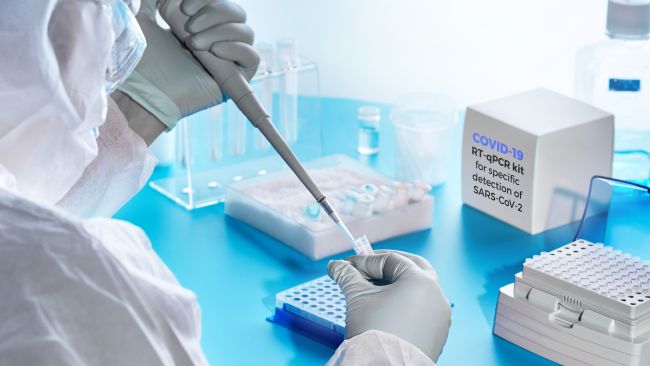0%

An epidemiologist runs PCR tests. (Photo: Shutterstock)
KATHMANDU: Currently, the majority of the Covid-19 test reports that are coming from are using the Polymerase Chain Reaction (PCR).
PCR tests detect the genetic information of the virus — the RNA. This is possible if the virus is there and a person is actively infected.
PCR tests are carried out to detect the presence of an antigen, rather than the presence of a body’s immune response or any antibodies.
The tests can tell people whether or not a person has virus very early on by detecting viral RNA, which is present in the body before antibodies form or symptoms of the disease are present.
PCR gives a good indication of whether a person is infected or not.
If infected, a person can be isolated or even can be quarantined.
This is the advantage of the current diagnostic tests.
By increasing the PCR testing to screen swathes of nasopharyngeal swab samples, health officials can get a picture of the spread of Covid-19 within a population.
Likewise, PCR tests are also used to detect HIV’s genetic material, called RNA. The tests can be used to screen the blood supply and to detect early infections before antibodies have been developed.
Such tests may be performed just a few days after exposure to HIV. These tests are accurate but are not performed as often as other HIV tests because they are expensive.
The testing techniques have their own caveats.
Over the course of the Covid-19 crisis, PCR has become a reliable, accessible testing to screen for the disease.
PCR tests can be very labor intensive with some stages at which some errors may occur between sampling and analysis.
False negatives can also occur up to 30 percent of the time with different PCR tests, which means that they are useful for confirming the presence of an infection.
(With inputs from Agencies)